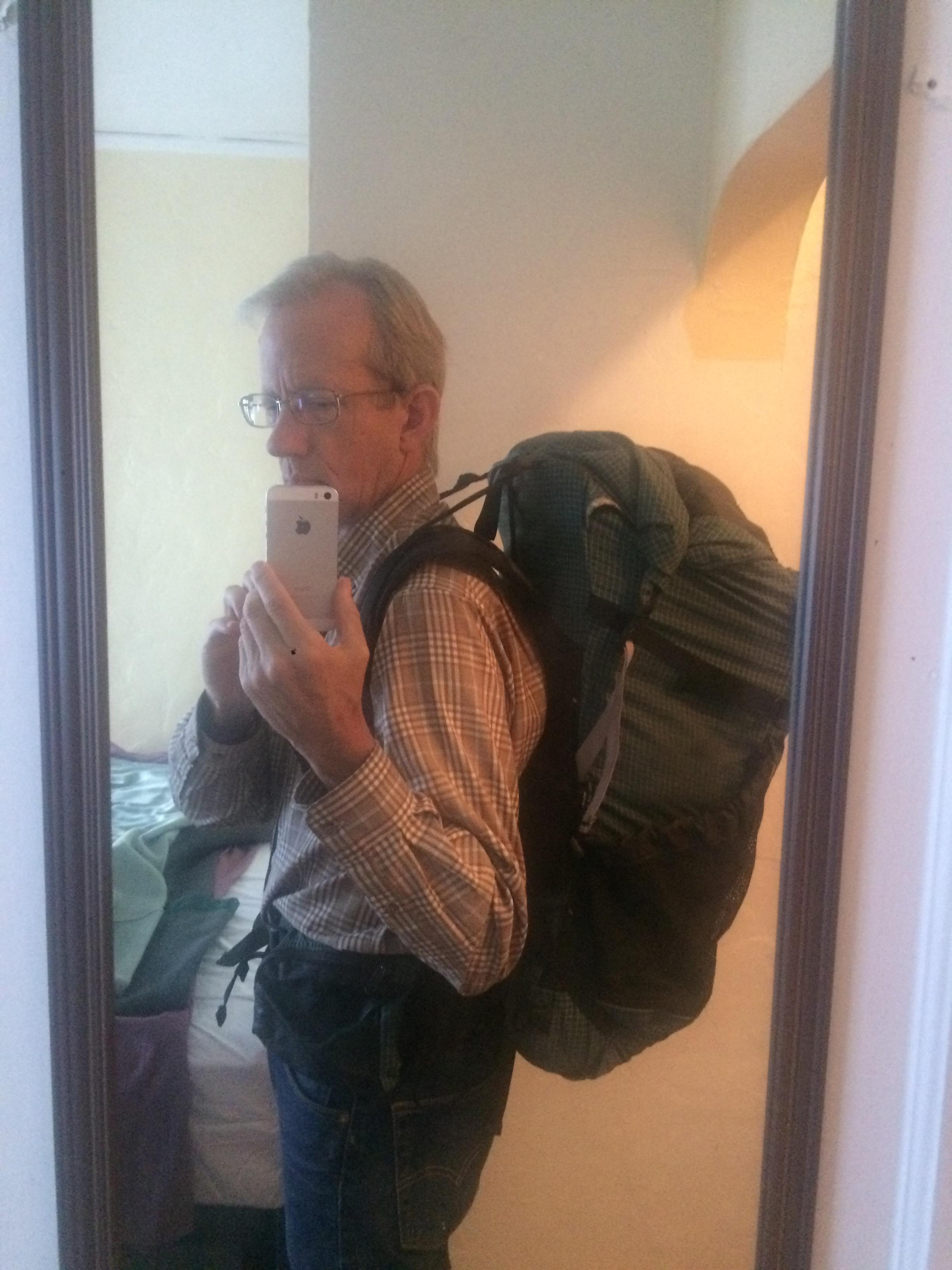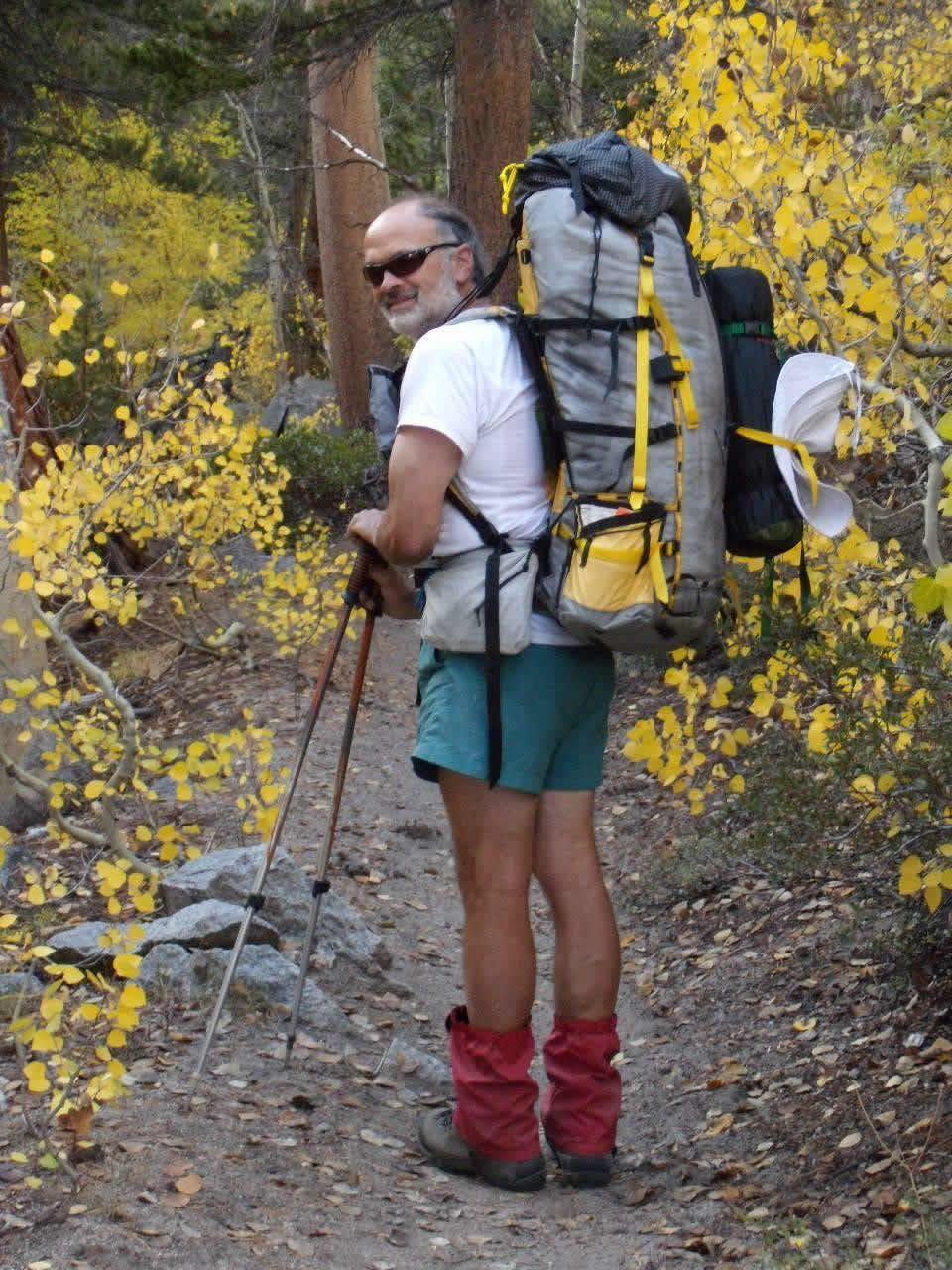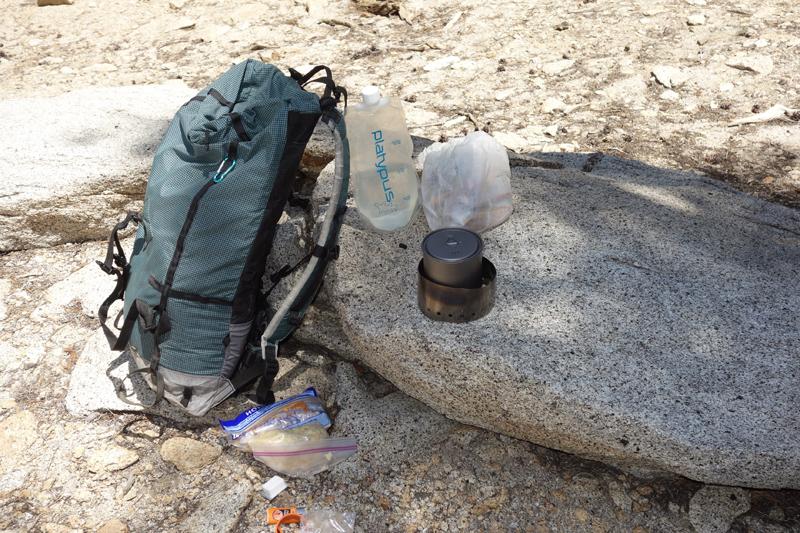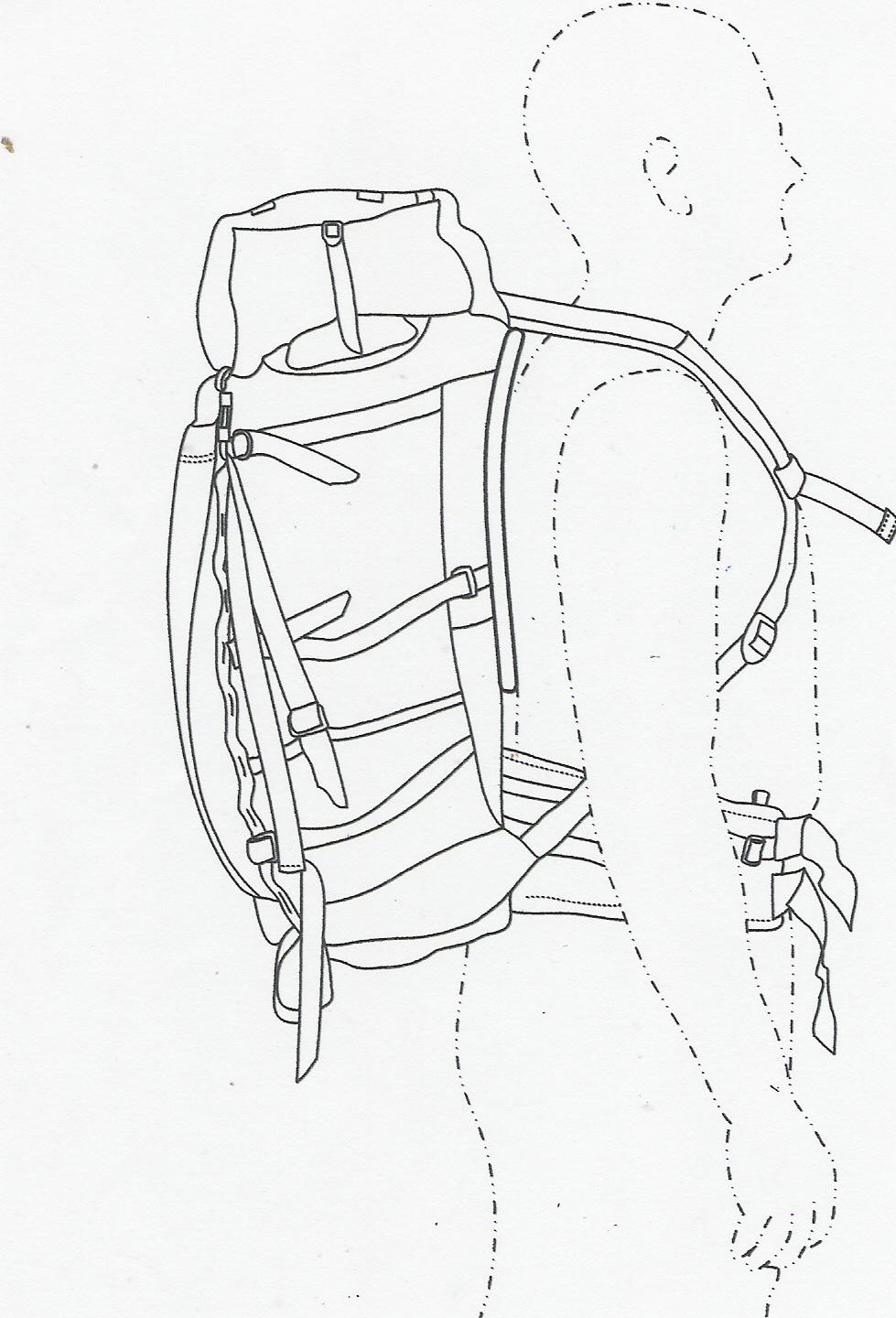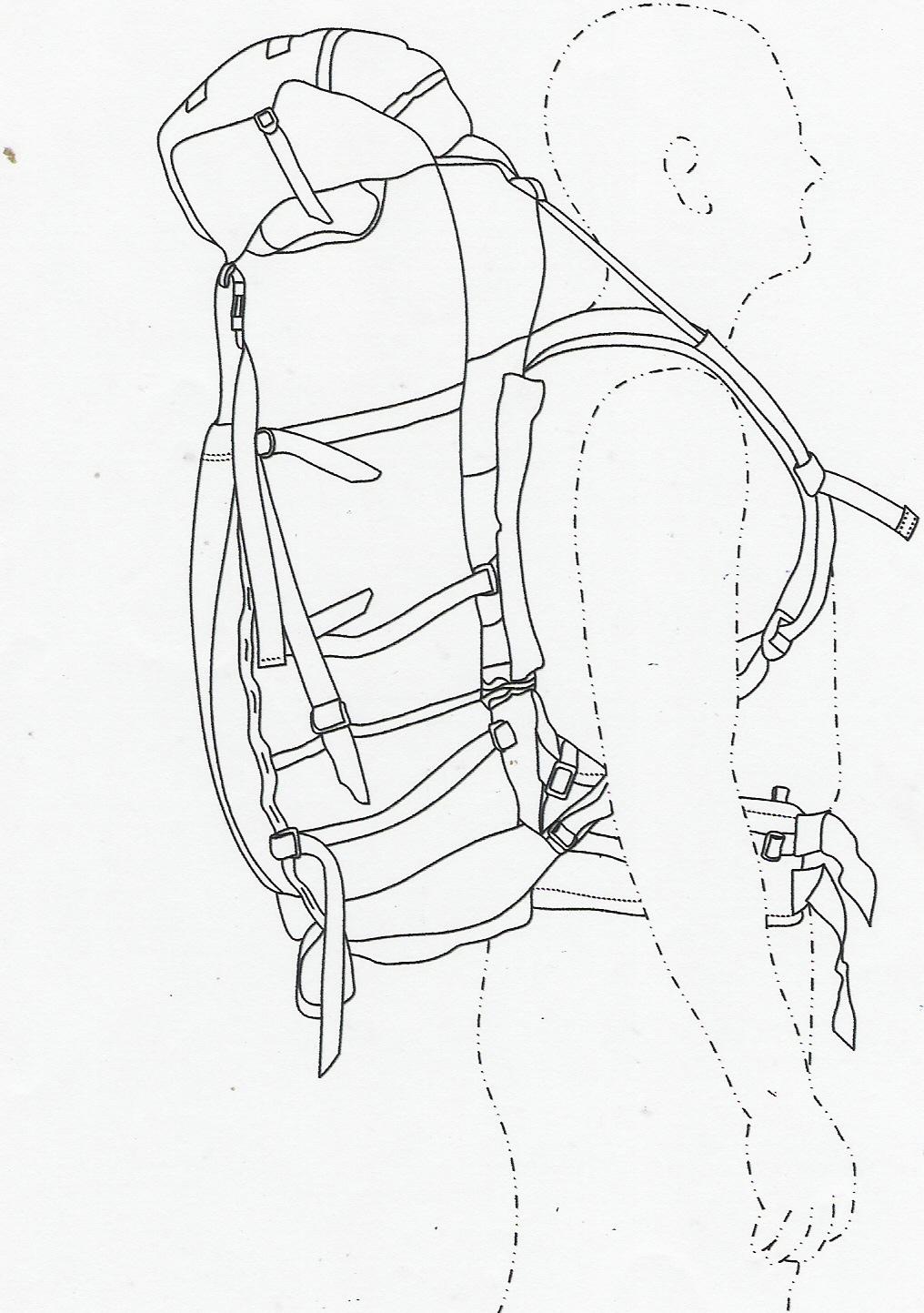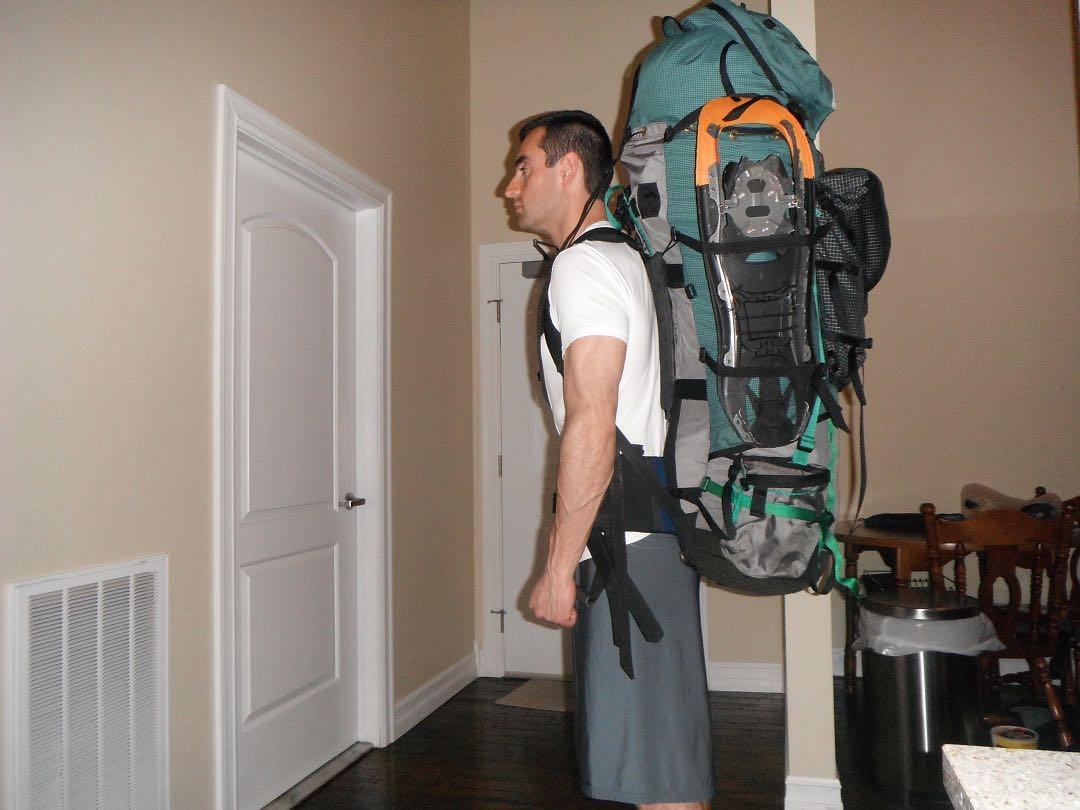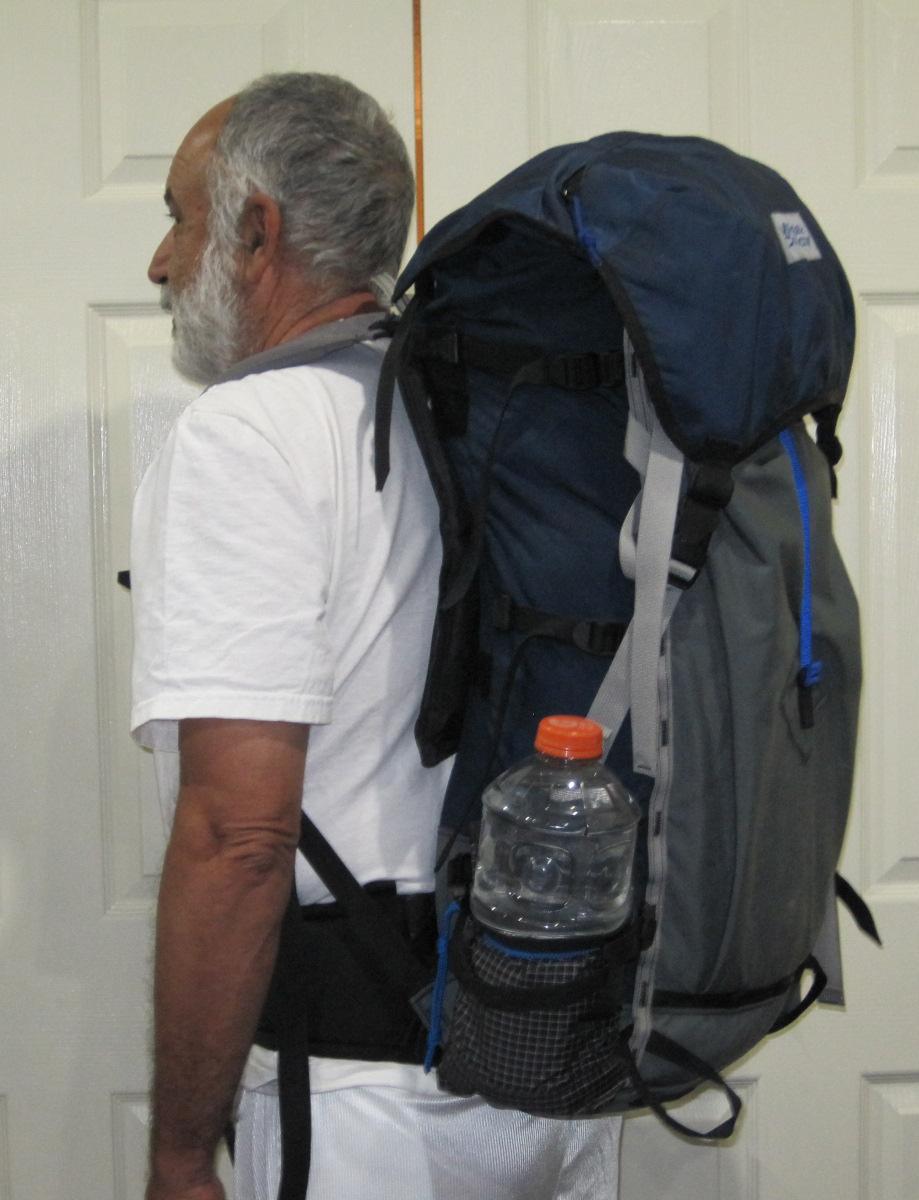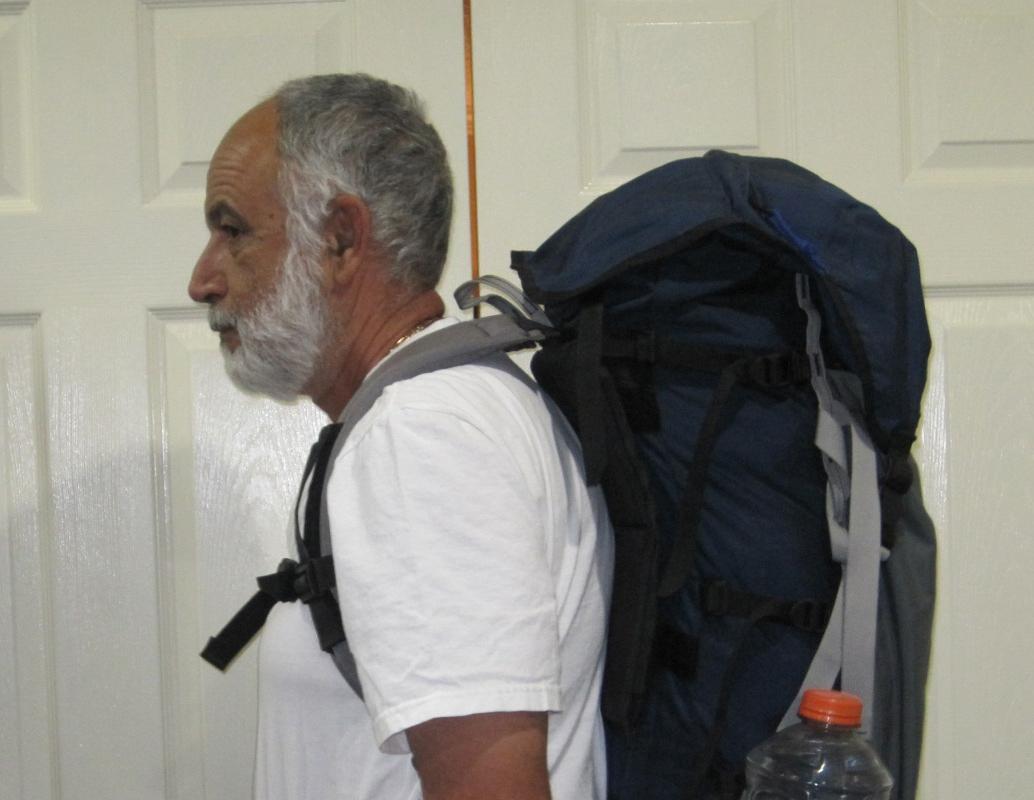Topic
Shoulder strap wrap or straight back?
Forum Posting
A Membership is required to post in the forums. Login or become a member to post in the member forums!
Home › Forums › Gear Forums › Make Your Own Gear › Shoulder strap wrap or straight back?
- This topic has 18 replies, 9 voices, and was last updated 4 years, 10 months ago by
 Nick Gatel.
Nick Gatel.
-
AuthorPosts
-
Mar 1, 2020 at 6:45 pm #3633894
I imagine this has been discussed many times, but I’m still not clear on the concept. I’m making a pack with two aluminum bar stays and with load lifters high enough on the pack to be at about 45 degrees.
Some people online say the shoulder straps should wrap down an inch or two from the top of the shoulders. Others say they should go straight back, level with the top of the shoulders.
I’m inclined (no pun intended) to try for straight back. It seems, for instance, that’s the way McHale does it.
What’s the advantage or disadvantage of either approach?
Mar 2, 2020 at 9:30 am #3633939If shoulder straps go straight back, i.e. level from your shoulders, they are not bearing any significant weight. They are simply holding the pack against your body.
Mar 2, 2020 at 9:36 am #3633941yeah, straight back – no weight carried down on shoulders
if the straps angle down from shoulder to pack then shoulders carry some of the pack weight
if the straps angle up, that’s okay, sort of like load lifters
I like to sometimes loosen waist belt and let some of the weight be carried by shoulders, rest the hips, then the straps will angle down from shoulders to pack
Mar 2, 2020 at 4:43 pm #3634025Hi Doug
What makes you think that McHale fits for straight back? I rather doubt it – he has a patented load lifter which you wouldn’t really need unless you were curving the strap down your back.
It’s hard to find good images of his packs in use, but here’s one that clearly shows a full shoulder wrap. Of course, this is a monster load lugger, but I’d be surprised if his smaller packs were any different.
Now *this* is how a pack should fit!
 Mar 2, 2020 at 5:29 pm #3634029
Mar 2, 2020 at 5:29 pm #3634029Matt—Having (almost) all the weight on my hips is my goal. Though…
Jerry—Yes, I also like to sometimes shift a bit more weight to the shoulders to relieve the hips.
Geoff—I got that impression about McHale packs from somewhere—I’m hot sure where now except maybe this video of a customer showing Dan McHale how his demo pack is fitting: https://youtu.be/2GpgIXldl5U?t=153
I’m amazed you found that photo. Is it of you (or a friend)? They definitely are hard to come by.
The issue for me is how to make a myog pack. How high up from the hipbelt should the shoulder straps be attached to the bag? (And, combined with that, how long should the shoulder straps be?)
Mar 2, 2020 at 5:37 pm #3634030distance from waist belt to shoulder strap attachment is the torso length. Depends on the person.
if you tighten the waistbelt, then straight over from top of shoulders is where they should be attached. or let them attach lower than the shoulders, like the McHale photo, and add load lifters.
for me, the wide shoulder straps are 19 inches long, then 1 inch webbing that’s about 12 inches long
Mar 3, 2020 at 7:44 am #3634088Doug – When I measure my torso according to the experts, I get 20″. So, I use that measurement for my myog packs measuring from the bottom of the hipbelt (at the bottom of the pack) to my shoulder straps. When I’m wearing it, the loaded pack settles, and yes, the hipbelt sinks below my waist bones about 1″, but 20″ is still very comfortable. It provides the shoulder-strap drop you desire in order to shift weight to the hips. That measurement also keep my shoulder-straps from attaching to the pack above where my rolled-up closed-cell foam pad vertically stands in in the interior of the pack. My gear typically fits inside this “barrel”, so I do not want my shoulder-straps to be the highest point on the pack.
Bottom line -Let your straps angle downward and don’t get too obsessive about your exact torso length. MYOG / UL packs are much more flexible with fit than larger/traditional packs.
Mar 3, 2020 at 12:05 pm #3634111Jerry—Thanks for the sample measurements.
Matt—That’s interesting how you use your torso measurement from the bottom of the hipbelt. I would think it would make sense to start at the middle of it since most people want the iliac crest to be near the middle of their hipbelt.
It occurs to me that a little shoulder strap wrap (not a song) would allow for moving the pack closer and a bit farther away from your back by tightening and loosening the load lifter straps.
In my first prototype pack, I copied measurements from my ULA Catalyst and got what I think is too much wrap…like 3 to 4 inches. Here’s the Catalyst loaded with a moderate weight. (Sorry for the too dark photo.)
 Mar 6, 2020 at 11:27 am #3634512
Mar 6, 2020 at 11:27 am #3634512Some shoulder wrap provides more options for shifting weight between shoulders and hips. I’d say Geoff’s photo is perfect, though I personally would go with less frame height and a lower angle on the load lifters unless you’re designing for 70+ pound loads.
I understand the logic of having a long enough torso that when weighted the strap attachment goes parallel to the ground, but I’ve never found such a pack to be comfortable in use.
Mar 6, 2020 at 3:35 pm #3634559I’ve had two McHale packs builtfor me and his fitting process was consistently at the top or a bit higher than the shoulders. I recognize that it’s a matter of personal preference, but I’ve carried packs a lot of miles both ways and definitely prefer the attachment above the shoulder.
Ron
Mar 6, 2020 at 3:58 pm #3634560I like to wrap down some. In concert with a properly designed and connected “load lifter”, that gives you the most options in terms of distributing load and pressure and achieving load control. The idea of straps that go straight back off the shoulder makes sense only if you are intending to get all of the weight onto the hipbelt and use the shoulder straps just a a way to hold the pack against your back. Since straps are soft, they can only support weight in tension; so to put any weight on your shoulders you need the straps to wrap down some. Running horizontally through space they simply cannot support any weight unless there is something in compression holding the two ends apart. When I am walking on a nice flat trail I have my “load lifters” tight and my shoulder straps adjusted so that there is little or no tension between where the “lifter” strap attaches and where the shoulder strap attaches to the back of the pack. That means I have all or nearly all the weight on my hips. But I find this slightly less stable than having some weight on the shoulders, so for skiing or off-trail walking I will adjust things.
How much to wrap down? I think an inch or two below the top of the shoulder is about right.
By the way, I put “load lifter” in quotes because it it a misnomer and I think it is misleading. These straps don’t lift any load; they can lift the shoulder strap off the shoulder and create a line of tension from top of lifter strap attachment to bottom of shoulder strap attachment in order to hold the pack against the wearer’s back while the structure of the pack transfers the load to the hips.
Mar 6, 2020 at 5:31 pm #3634573Just goes to show, people’s experiences differ.
David—I appreciate your adding your 2 cents as you’ve made a lot of cool packs. Great point about the load lifter angle.
Ron—It’s hard to argue with McHale, but maybe his design is based on the idea that if you start with the straps at the height of the shoulders, when you really load it up the pack will sink down a bit, in effect creating a bit of wrap. Hmm.
Paul—That makes sense to me. If you have the shoulder straps going straight back with all the weight on the hipbelt, then want to shift some weight to the shoulders, the pack is going to sink down a bit…as you say, straps can’t stay stiffly horizontal when pulled down on.
So, I’m back to the 1 or 2 inches I’d read about in the past, but with a better sense of confidence in it.
This forum is great—So much savvy and experience.
Mar 7, 2020 at 11:27 am #3634648Wrapping is more stable and disperses any load over a greater area with less pressure per unit area. It is hotter.
Mar 7, 2020 at 9:25 pm #3634774I just found this comment on McHale’s website, so I thought I’d add it to the record here:
Shoulder pads only need to warp over the shoulders a tiny bit. Horizontal is OK but angling upward is a no no.
[from http://www.mchalepacks.com/ultralight/Detail%20Hi%20Rez%20Pages/Used%20Pack%20Buying%20Guide.htm ]
Mar 8, 2020 at 4:49 am #3634799I have a couple of McHale packs that have been my go to packs for almost 10 years. Because I have extreme curvature in my back, Dan spent a lot of time with me getting a perfect fit. But before I discuss that, we might want to know how he wears his own packs.
Here’s the master…

Now, most of his larger packs, to include my LBP36 come with the optional bayonet system. How this works is a frame extension that is used for heavy loads and are integrated with his unique load lifter system called the by-pass harness. Keep in mind that, without the bayonet extentions installed, the top of the frame stays end at the top on the main bag (excluding the material for the roll top) and the shoulder straps are sewn right at the top too. So if the shoulder straps wrap around shoulders the frame will be below the top of the shoulders, which we probably wouldn’t want. This picture of my Bump shows where the shoulder straps are located:

With Dan’s system he recommends that when using light loads without the frame extensions the shoulder straps should be level or even slightly above the shoulders. Here’s a drawing he sent me:

Looking at the drawing above, you can see there is a removable top lid attached to the top of the pack, and the shoulder strap is at the level of the top of the internal frame stay.
When using the bayonet system with heavy loads the main stay is shortened by 1.5 inches (using a built-in swivel), and then the frame extension is attached inside the pack. Now, the shoulder straps shave a slight wrap and the by-pass harness is routed outside of the shoulder strap and connects at the top of the much longer frame stay . Most of us here on BPL will rarely, if ever, need this function. Here is a drawing:

For those who need this feature, here is what it looks like with a incredibly heavy pack:

Below are pictures of my frame stays; one from the LBP36 with the Bayonet system (top), and one from my small Bump backpack (bottom). Notice the top one is shorter, because the swivel has been turned to the short position. If I lengthen it both stays they are the same length. Also the top stay is thicker and wider than the stay from my lightweight Bump. Note the curvature on the right, this is where the back of the pack rests against my upper back… a lot of curvature and having the shoulder straps up high helps keep it secure against my back, plus with the light loads I carry (never over 35 lbs, even with 2 gallons of water in deserts), I carry most, if not all, of the weight on my hips.

Below are two pictures from the demo pack process with Dan, I did back in 2010 for my larger LBP36. These pictures are without the frame extensions installed. After looking at these pictures and talking to me on the phone he had me add even more curvature to the stays.


Seems there is a lot more than just determining where the shoulder straps should be, as it is dependent on how and where the frame is placed, body shape, etc. Also, Dan mentioned I like to keep my hip belt higher on my waist than most people, but it works for me given the belts on both packs are 5 inches tall.
Mar 8, 2020 at 7:18 pm #3634911Nick—That’s an awesome post, thanks! I’ll never be one to buy a McHale pack, but I truly admire his innovations and focus on pure functionality.
It seems that if the shoulder straps are going straight (horizontal) or up at their top, there can’t be any weight on them (it’d be all on the hipbelt). I mean, if you undid the hipbelt the pack would drop down till you had some shoulder wrap, right?
Anyway, for my purposes of a myog pack with load lifters and tall-ish stays, I’m going to go with the shoulder strap wrap.
Mar 8, 2020 at 8:20 pm #3634925It seems that if the shoulder straps are going straight (horizontal) or up at their top, there can’t be any weight on them (it’d be all on the hipbelt). I mean, if you undid the hipbelt the pack would drop down till you had some shoulder wrap, right?
Yes, and I do that sometimes… and since I wear my belt high, as noted above, It still fits around my hips. But most of the time I don’t want any weight on my hips. Same with an external pack…
 Mar 8, 2020 at 10:14 pm #3634941
Mar 8, 2020 at 10:14 pm #3634941Nick—That makes sense.
Mar 8, 2020 at 11:48 pm #3634950Doug, in my last post I meant to say I don’t want any weight on my shoulders. I can’t edit posts here any more.
-
AuthorPosts
- You must be logged in to reply to this topic.
Forum Posting
A Membership is required to post in the forums. Login or become a member to post in the member forums!
Our Community Posts are Moderated
Backpacking Light community posts are moderated and here to foster helpful and positive discussions about lightweight backpacking. Please be mindful of our values and boundaries and review our Community Guidelines prior to posting.
Get the Newsletter
Gear Research & Discovery Tools
- Browse our curated Gear Shop
- See the latest Gear Deals and Sales
- Our Recommendations
- Search for Gear on Sale with the Gear Finder
- Used Gear Swap
- Member Gear Reviews and BPL Gear Review Articles
- Browse by Gear Type or Brand.


